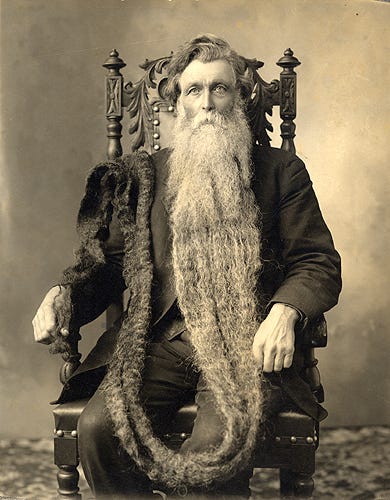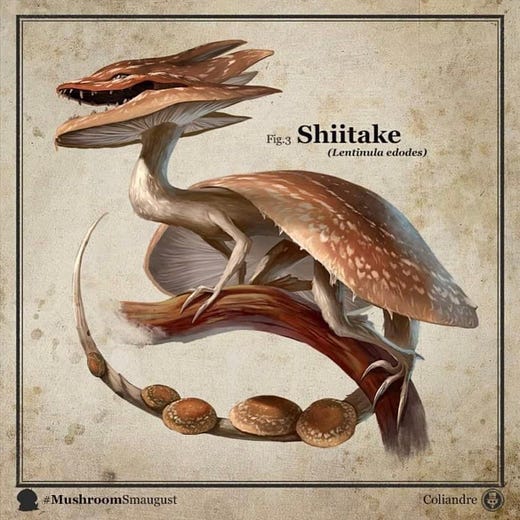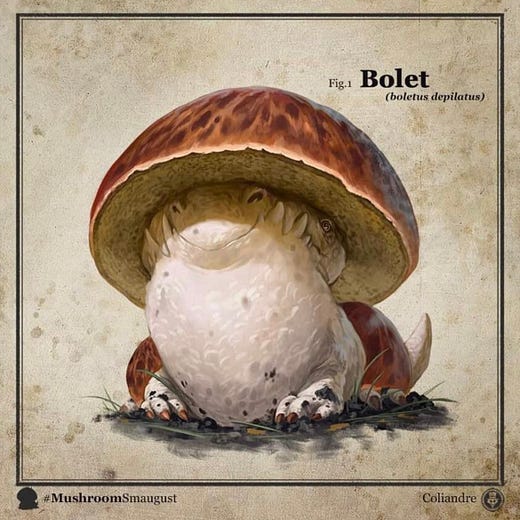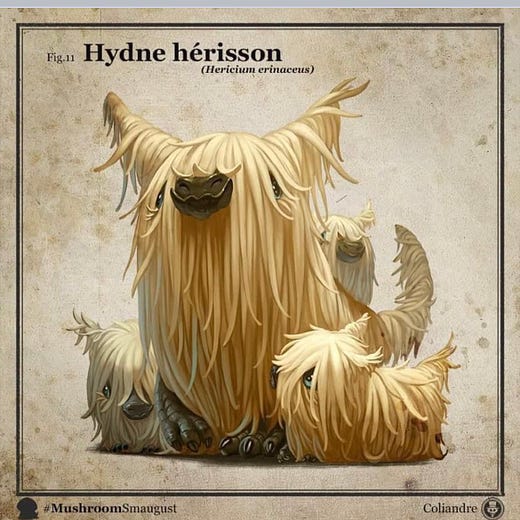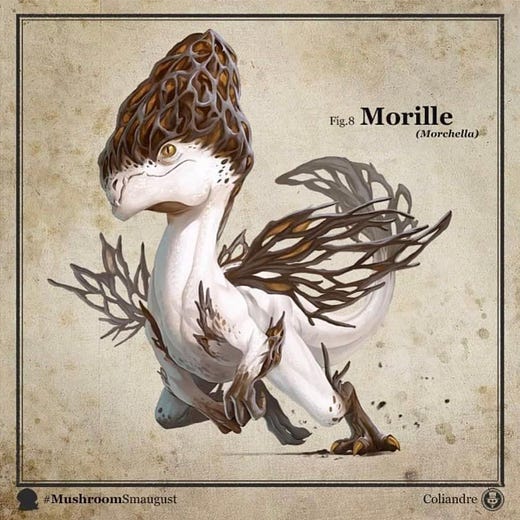Links and Thoughts (June '22)
1. I refuse to believe that Hans Langseth was not a wizard.
Hans Nilson Langseth (July 14, 1846 – November 10, 1927) was a Norwegian-American who held the record for the world's longest beard.
Langseth was born in Eidsvoll in 1846 and immigrated to the United States in 1867. He married Anna Berntsen in 1870 and worked as a farmer in Elkton Township, Clay County, Minnesota. At age 19, he began growing a beard as part of a contest, and it is unclear if he won the contest. In his later life, he traveled around the United States as part of a freak show showing off his beard.
Langseth died aged 81 in Wyndmere, North Dakota, and is buried in Elk Creek Church Cemetery in Kensett, Iowa. When he died, his beard measured 5.33 meters (17.5 ft). It was donated to the Department of Anthropology at the Smithsonian Institution in 1967
(1) lol at “unclear if he won the contest”
(2) I mean he basically just stopped doing something he probably didn’t want to anyways (i.e. shaving) and then got paid to travel around the country and be admired, sounds like magic to me.
2.
3. Mood:
4. The Vault!
“The vault or vault cytoplasmic ribonucleoprotein is a eukaryotic organelle whose function is not yet fully understood. Discovered and isolated by Nancy Kedersha and Leonard Rome in 1986, vaults are cytoplasmic organelles which, when negative-stained and viewed under an electron microscope, resemble the arches of a cathedral's vaulted ceiling, with 39-fold (or D39d) symmetry. They are present in many types of eukaryotic cells, and appear to be highly conserved among eukaryotes.”
5. Hmmmm….
6. New blog I’m enjoying: https://tis.so/
From a post entitled “Language and Science”:
“According to Wootton, until the voyages of Columbus, there wasn’t really a word for our modern concept of “discovery” in any of the major European languages. The closest equivalents in Latin were terms he translates as “explore”, “obtain”, and “find out”. “Discovery” as a term eventually spread throughout these languages, derived from the Portuguese “discobrir”, which previously meant “explore”, and gradually took on a meaning closer to “uncover”.
These may all sound quite similar, Wootton’s point is that the creation or adoption of a new term goes hand in hand with a new way of thinking. For Wootton, as an historian, this is especially useful in trying to understand the past: “Usually, linguistic change is a crucial marker of a modification in the way in which people think — it both facilitates that change and makes it easier for us to recognize it.”
7.
8.
9. Two things:
(1) Look, I love rap music (2pac, Biggie, Jay-Z, Eminem, Kendrick Lamar, Freddie Gibbs, etc. etc.) and house music as much as the next guy or gal, but this shit slaps and you can’t tell me otherwise.
(2) I just feel like the world would be a better place if there were more male/female vocal harmonization.
10. Speaking of rap music, here’s a new joint that I’m feeling.
11. Score one for the anti-natalists:
12. The Silurian Hypothesis
“In a 2018 paper, Adam Frank, an astrophysicist at the University of Rochester, and Gavin Schmidt, director of the Goddard Institute for Space Studies, imagined an advanced civilization before humans and pondered whether it would "be possible to detect an industrial civilization in the geological record". They wrote, "While we strongly doubt that any previous industrial civilization existed before our own, asking the question in a formal way that articulates explicitly what evidence for such a civilization might look like raises its own useful questions related both to astrobiology and to Anthropocene studies." The term "Silurian hypothesis" was inspired by the fictional species called the Silurians from the British television series Doctor Who.
According to Frank and Schmidt, since fossilization is relatively rare and little of Earth's exposed surface is from before the Quaternary time period, the chances of finding direct evidence of such a civilization, such as technological artifacts, is small. After a great time span, the researchers concluded, contemporary humans would be more likely to find indirect evidence such as anomalies in the chemical composition or isotope ratios of sediments. Objects that could indicate possible evidence of past civilizations include plastics and nuclear wastes residues buried deep underground or on the ocean floor.
Prior civilizations could have gone to space and left artifacts on other celestial bodies, such as the Moon and Mars. Evidence for artifacts on these two worlds would be easier to find than on Earth, where erosion and tectonic activity would erase much of it”
13. Still trying to figure this one out:
Sober me isn’t really that interested in how citizen’s arrest works, but in case you are here is the wikipedia page.
14. Hmmm…
15.
16. Comment from Ivan (author of The Lifeboat) on Nomen est Omen:
Fascinating! Lots to think about. Another thing I find interesting is what happens to your perception of your own name when you move to another country. For people of the new culture you get into, it signifies a different set of meanings, stereotypes attached to it; it even sounds differently when they say it. It’s almost like getting a new name that you have to get used to but you have no choice or any control over it. It’s not something overdramatic or something you can’t cope with, just yet another insecurity from an expat.
17. Seeds of Science update:


